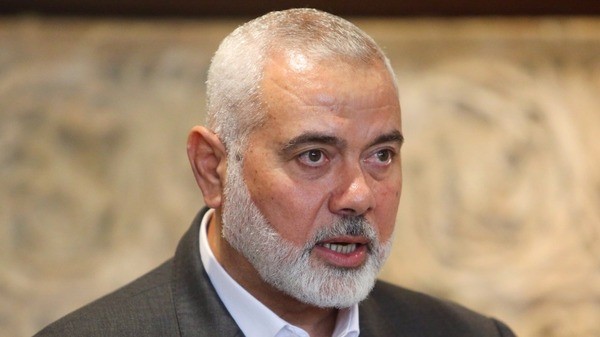Iran’s Plan to Strike Back Against the U.S.
Iran’s Military Preparations Following U.S. Attacks
Loading...

Hamas has promised to approach any prospective ceasefire agreement that aligns with the Palestinian resistance movement's demands with seriousness and positivity.
Hamas's Political Bureau Chief, Ismail Haniyeh, stated these remarks in a statement on Wednesday, outlining the movement's demands as "the complete cessation of aggression, full withdrawal, and the exchange of prisoners."
The Israeli government has been conducting a deadly offensive against the Gaza Strip, governed by the movement, since October 7, when resistance groups in the coastal enclave launched Al-Aqsa Storm, a retaliatory operation against the occupied territories.
Casualty figures indicate that at least 36,550 Palestinians, predominantly women and children, have lost their lives, while another 82,959 individuals have been injured during the conflict. Additionally, over 1.7 million people have been displaced internally due to the extensive military campaign.
Egypt and Qatar have been facilitating negotiations aimed at reaching a ceasefire agreement, following a previous one in November, during which Hamas released 105 captives seized during Al-Aqsa Storm.
In early May, Hamas agreed to another ceasefire proposal, which would have halted Israeli aggression and led to the release of the remaining captives. However, the Israeli government rejected the proposal.
Expanding on his comments, Haniyeh stated, "The Hamas movement is approaching the negotiations with this stance, which reflects the will of our people and their courageous resistance."
Elsewhere in his statement, the Hamas leader referenced a march that took place earlier on Wednesday, involving thousands of illegal Israeli settlers parading through a Palestinian neighborhood in the contested city of al-Quds.
The march coincided with the contentious Flag Day procession, marking the culmination of the Israeli government's Western-backed Six-Day War of 1967, resulting in the illegal occupation of Palestinian territory in the West Bank, including East al-Quds.
The Israeli government regards all of al-Quds, including its eastern sector, as its "eternal and undivided" capital.
However, Haniyeh remarked, "The settlers' incursion in al-Quds reaffirms that al-Quds is the focal point of the conflict, and our people will not rest until the occupation ends and an independent Palestinian state is established with al-Quds as its capital."
Iran’s Military Preparations Following U.S. Attacks
Troops remain in five strategic locations, raising fears of renewed tensions and long-term occupation.
Opposition forces have taken control of the capital after a significant offensive. Here is how it unravelled.
